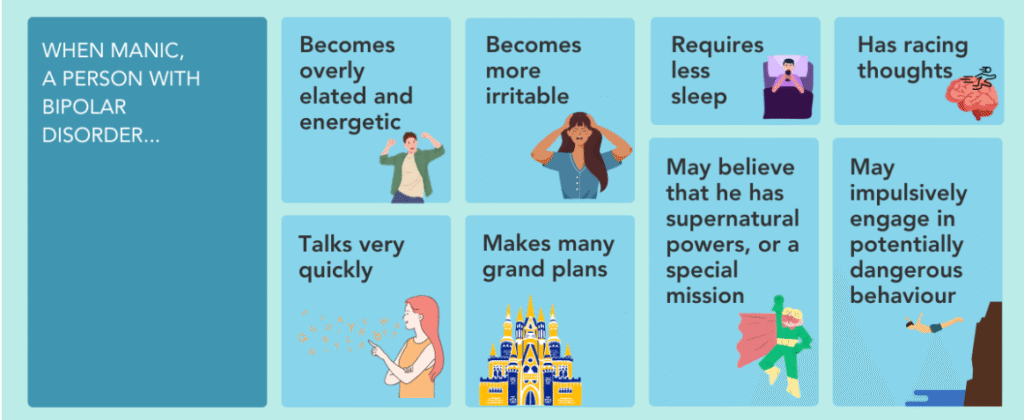
Understanding Bipolar Disorders
During manic episodes in Bipolar I, individuals may feel unusually energetic, impulsive, or euphoric, often leading to risky behaviors or disrupted relationships. These highs can be followed by intense depressive episodes marked by fatigue, hopelessness, and a loss of interest in daily life. In Bipolar II, the mood elevation is less extreme called hypomania but depressive phases can be just as severe and impairing. Both types can significantly affect work, relationships, and overall functioning if left untreated. Early diagnosis and ongoing management are key to stabilizing mood and improving quality of life.


Diagnosis and Differences
Identifying the correct type of bipolar disorder is crucial, as each requires a different treatment approach. Through detailed clinical interviews, we gather information about mood patterns, behavior changes, and personal history. Mood charting allows patients to track emotional highs and lows over time, offering insight into frequency and severity. Psychiatric evaluations further assess underlying symptoms and help rule out other mental health conditions. This comprehensive process ensures we create a treatment plan that meets the individual’s specific needs and supports long-term stability.
Managing Mood Episodes
Mood stabilizers help regulate extreme emotional shifts and reduce the intensity of manic or depressive episodes. Psychotherapy, such as cognitive-behavioral therapy (CBT), supports individuals in understanding their triggers, building coping skills, and maintaining routines. In some cases, additional medications like antidepressants or antipsychotics may be used to target specific symptoms. We also focus on educating patients and their families about early warning signs of mood changes, which helps in preventing relapses.


Empowering Patients for Stability
We believe that long-term success in managing bipolar disorder comes from building self-awareness and resilience. By teaching individuals how to recognize early warning signs of mood shifts, we help them take proactive steps to prevent escalation. Ongoing therapy offers a safe space to explore emotions and refine coping strategies, while regular medication management ensures stability. Our team stays connected with patients over time, adjusting care as life circumstances change. Ultimately, we aim to support individuals in leading meaningful, productive lives with confidence and emotional control.
